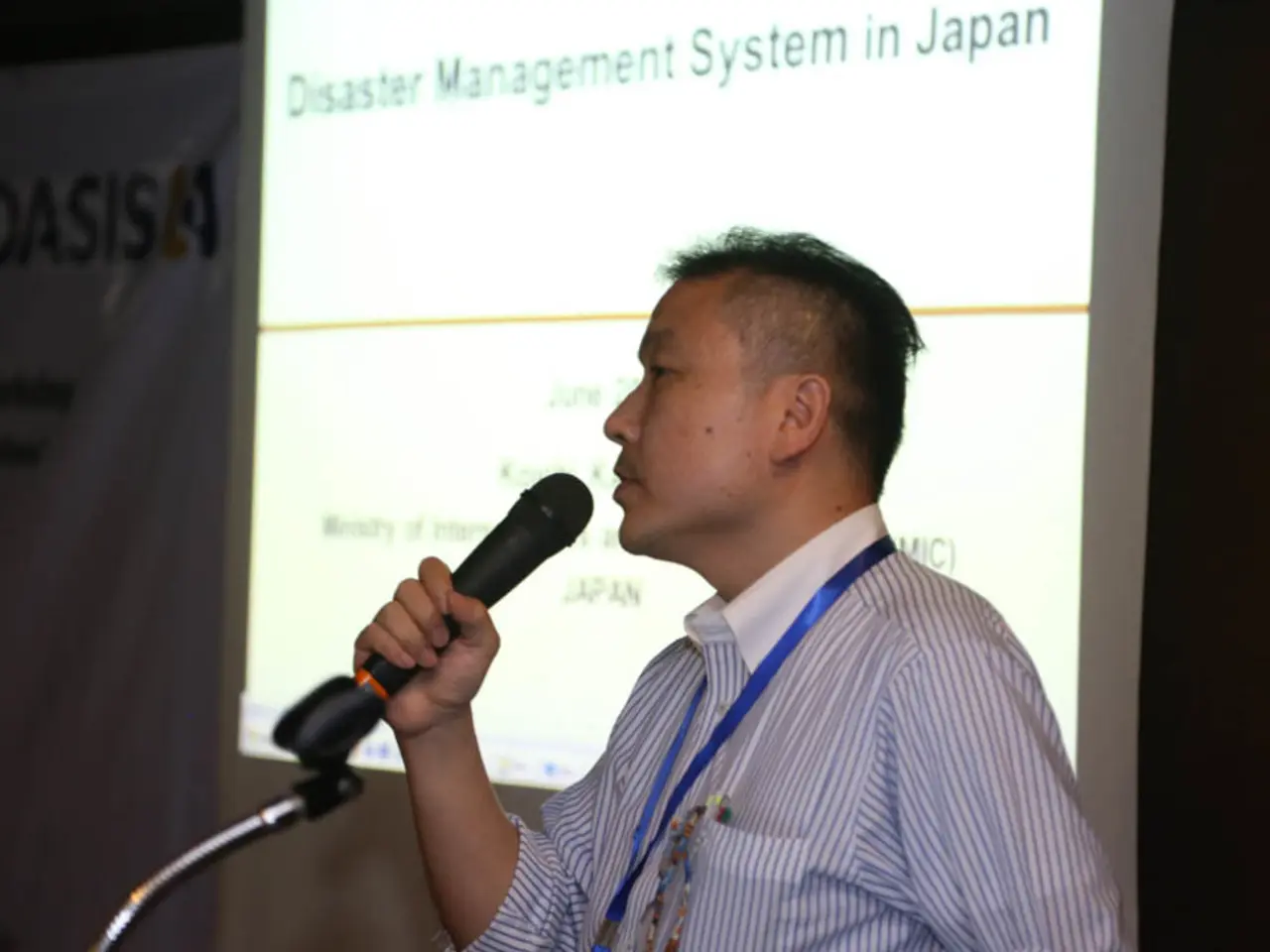Former Japanese Prime Minister Suga Exerting Influence in Liberal Democratic Party (LDP)
The Liberal Democratic Party (LDP) of Japan is grappling with an existential crisis following a severe loss in the July 20, 2025 House of Councillors election. The defeat has intensified debates about the future of LDP President and Prime Minister Shigeru Ishiba, with significant internal pressure for leadership change and strategic realignment.
Key developments in the LDP after the election loss include leadership challenges, factional reconsolidation, a potential strategic shift, challenges from new parties, and coalition weakening. Prominent LDP figures such as Taro Aso and members of the former Abe faction have publicly opposed Ishiba's continuation as party leader, calling for his resignation. Several party factions, including influential conservative groups, are moving to replace him.
The defeat has highlighted Ishiba's weak support base compared to dominant factions like the former Abe, Aso, and Motegi groups. These factions are expected to gain prominence within the party and may drive the selection of a new party president aiming to restore the party’s conservative base and Abe’s ideological legacy.
To recover, the LDP might need to expand alliances with rival parties or adopt policies from opposition groups. There is speculation that the party could lose its status as an undisputed leader of Japan's political system and instead rule as "first among equals" in a more fragmented political landscape.
The rise of fringe far-right parties like Sanseitō has chipped away at the LDP’s conservative base, attracting voters with nationalist and anti-globalist rhetoric. This development complicates the LDP’s traditional catch-all approach and exacerbates internal divisions over how to respond electorally and ideologically.
While the LDP and its coalition partner Komeito maintained a combined majority, their seats fell short of a controlling margin, forcing the LDP to govern as a minority coalition. This has constrained the LDP’s legislative dominance and added urgency to forging new political strategies.
Yoshihide Suga, a former Prime Minister, stressed the need to rebuild the LDP at a meeting with three other former and current prime ministers on July 23. Suga is considering ways to increase his presence ahead of an extraordinary parliamentary session in autumn. However, Suga did not express explicit opposition to Ishiba's continued leadership at the meeting.
Despite the internal strife, many people, according to media surveys, want Ishiba to continue in power. Taro Aso, one of the former prime ministers, has urged Ishiba to resign, stating that the party cannot win elections under his leadership. Most LDP members from the now-defunct intraparty faction led by former Prime Minister Shinzo Abe have increased calls for Ishiba's resignation since the Upper House election loss.
The LDP's defeat in the House of Councillors election has left the Ishiba-led ruling coalition without a majority in both chambers of Japan's parliament. The party is facing calls for change and rebuilding as it navigates through this challenging period.
The LDP's defeat in the House of Councillors election has sparked debates about the need for new policies to win elections, with characters like Taro Aso advocating for Ishiba's resignation due to weak support. This political crisis has also brought attention to potential shifts in the party's ideological stance, with conservatives aiming to restore Abe's legacy. Future alliances with rival parties or adopting policies from opposition groups are being considered as possible solutions by some members. The general news media has reported increasing demands for change within the LDP, as the party grapples with its decreased influence in Japanese politics.






